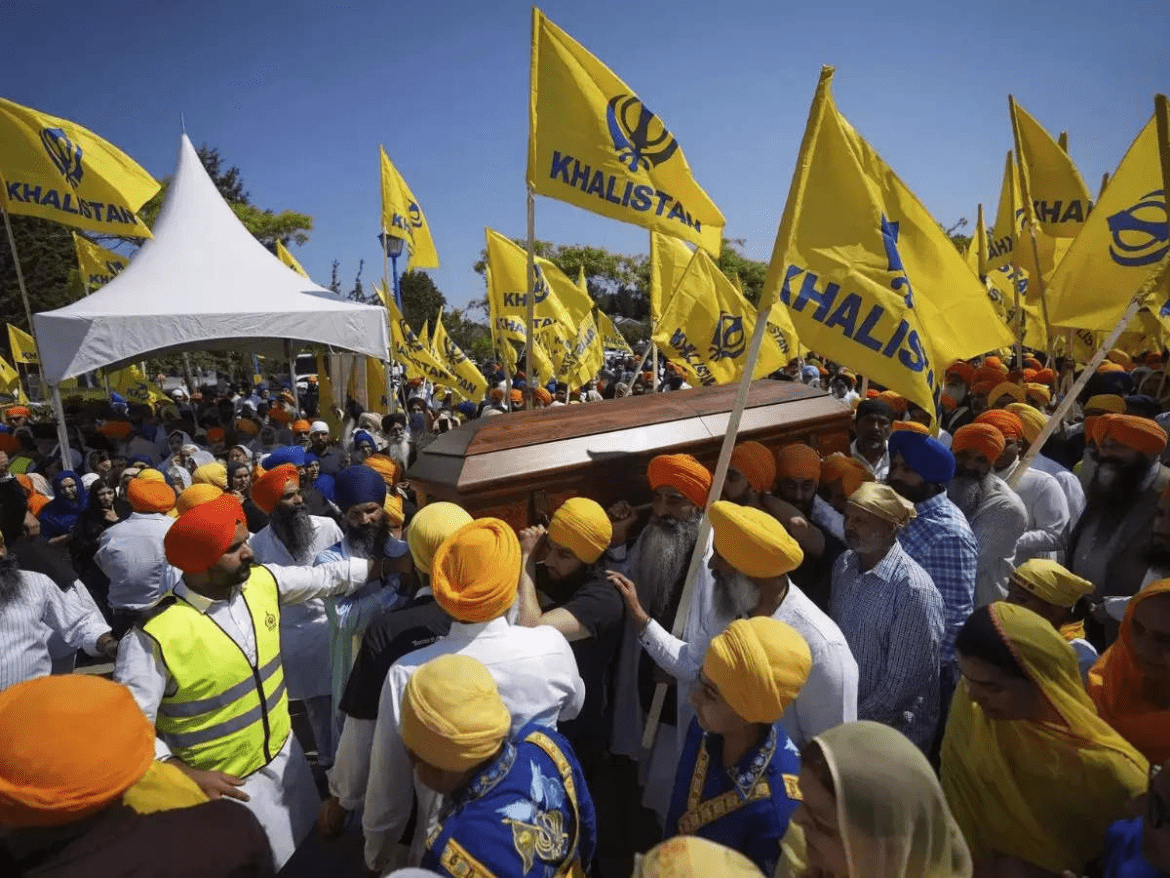AI Generated Summary
- The legitimization of Khalistani narratives and figures by Trudeau’s administration has potentially emboldened extremists, leading to acts of violence and threats against the minority communities in Canada.
- With cold shoulders at the G20 Summit, hosted by India, he found himself stranded in his attempt to rally the Anglosphere against India.
- Notably, this isolation comes at a time when many nations are viewing India as an invaluable partner against the rising tide of China’s geopolitical moves.
In recent days, Canadian Prime Minister Justin Trudeau’s international standing has taken quite a hit. With cold shoulders at the G20 Summit, hosted by India, he found himself stranded in his attempt to rally the Anglosphere against India. This followed allegations that Indian agents assassinated Hardeep Singh Nijjar, a figure Trudeau claims was a mere Canadian citizen, not a Khalistani terrorist.
Trudeau’s outcry from the Canadian Parliament’s floor and his subsequent efforts to rally international support have been largely rebuffed. Notably, this isolation comes at a time when many nations are viewing India as an invaluable partner against the rising tide of China’s geopolitical moves. Trudeau’s insistence on taking on India has jeopardized Canada’s relations with the Asian giant for the foreseeable future. But what is at the root of this?
Some argue it’s Trudeau’s opportunism, playing to a Khalistani lobby in Canada, possibly to divert attention from pressing domestic issues. But this move may have transformed Canada into a Western mirror image of Pakistan. Like its South Asian counterpart, Canada now grapples with a stuttering economy. Skyrocketing inflation has eroded average Canadian earnings, leading to fears of a looming recession.
Worryingly, Canada’s law and order situation mirrors another aspect of Pakistan. The rising menace of narco-terrorism finds its parallels with Pakistan’s tryst with Islamic terrorism. An influx of gangsters and drug lords from India’s Punjab have found refuge in Canadian cities, establishing transnational crime syndicates. The frightening scale of this was evident when New Zealand authorities intercepted a 713 kg drug shipment concealed in Canadian maple syrup bottles.
The political appeasement of Khalistani elements by Trudeau, allegedly for political gains, mirrors Pakistan’s long history of supporting extremist elements for short-term political benefits. The minority Trudeau government’s dependence on support from New Democratic Party leader Jagmeet Singh, known for his Khalistan leanings, adds another layer to this narrative.
Hate crimes against minorities in Canada are on the rise. The legitimization of Khalistani narratives and figures by Trudeau’s administration has potentially emboldened extremists, leading to acts of violence and threats against the minority communities in Canada. This disturbing trajectory eerily mirrors the plight of minorities in Pakistan, dwindling due to sustained extremist violence and state indifference.
Trudeau’s seemingly selective outrage is another concern. While quick to accuse India without concrete evidence, he was notably silent on issues concerning Baloch activist Karima Baloch’s mysterious death in Canada or Chinese interference targeting Canadian citizens, despite concrete evidence.
Canada, historically a symbol of openness and acceptance, risks being equated to Pakistan, a country grappling with extremism and its aftermath. The appeasement of Khalistani elements by Canada’s leadership may bear a steep price for the nation. India’s stringent diplomatic response might be just the beginning, with economic repercussions soon to follow. One can only hope that Canada redirects its course before the damage becomes irreparable.
The opinions expressed in this article are those of the author. They do not purport to reflect the opinions or views of Khalsa Vox or its members.




